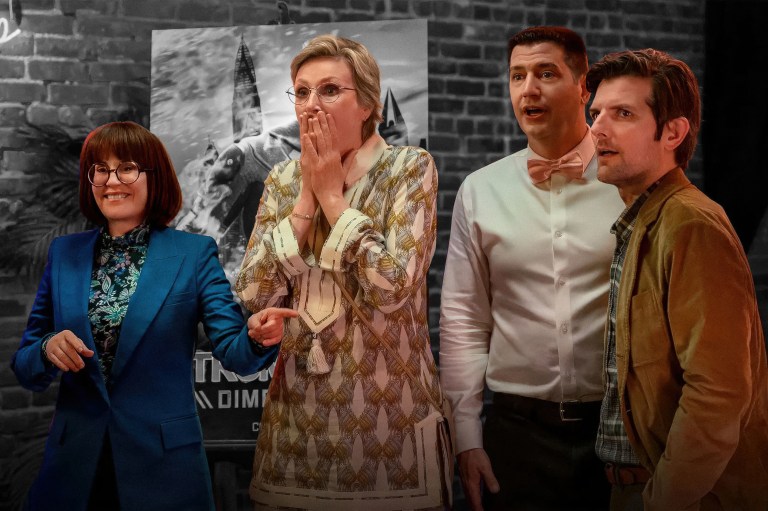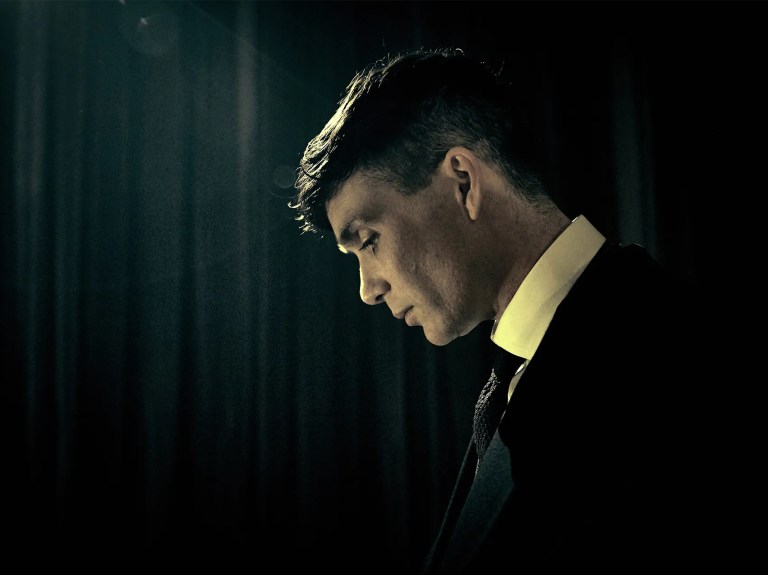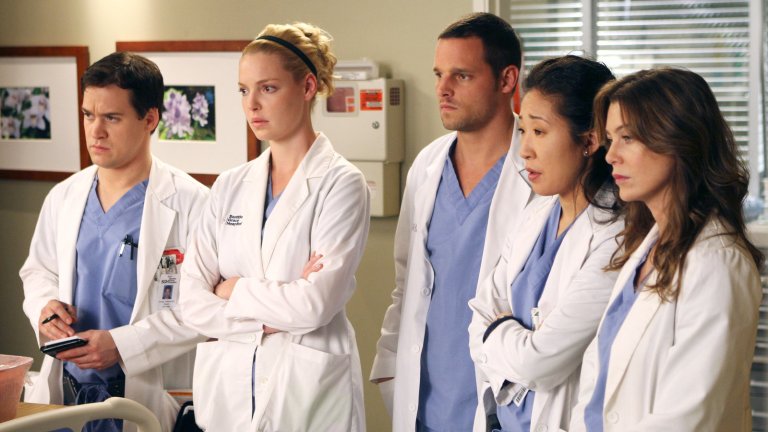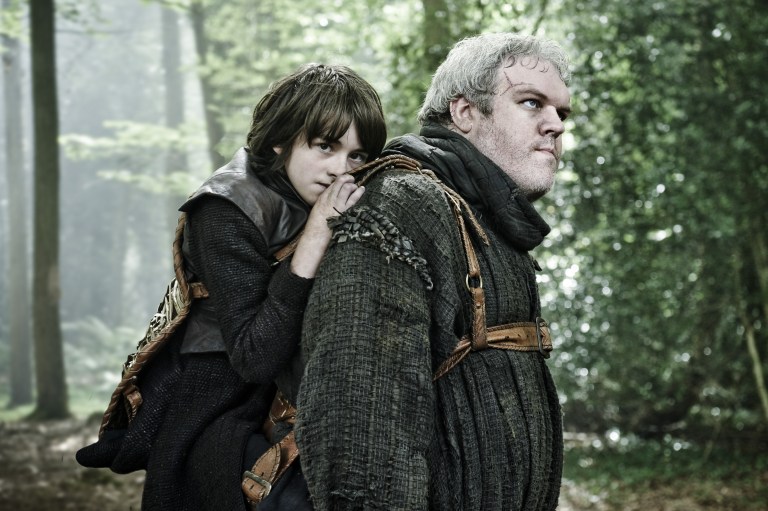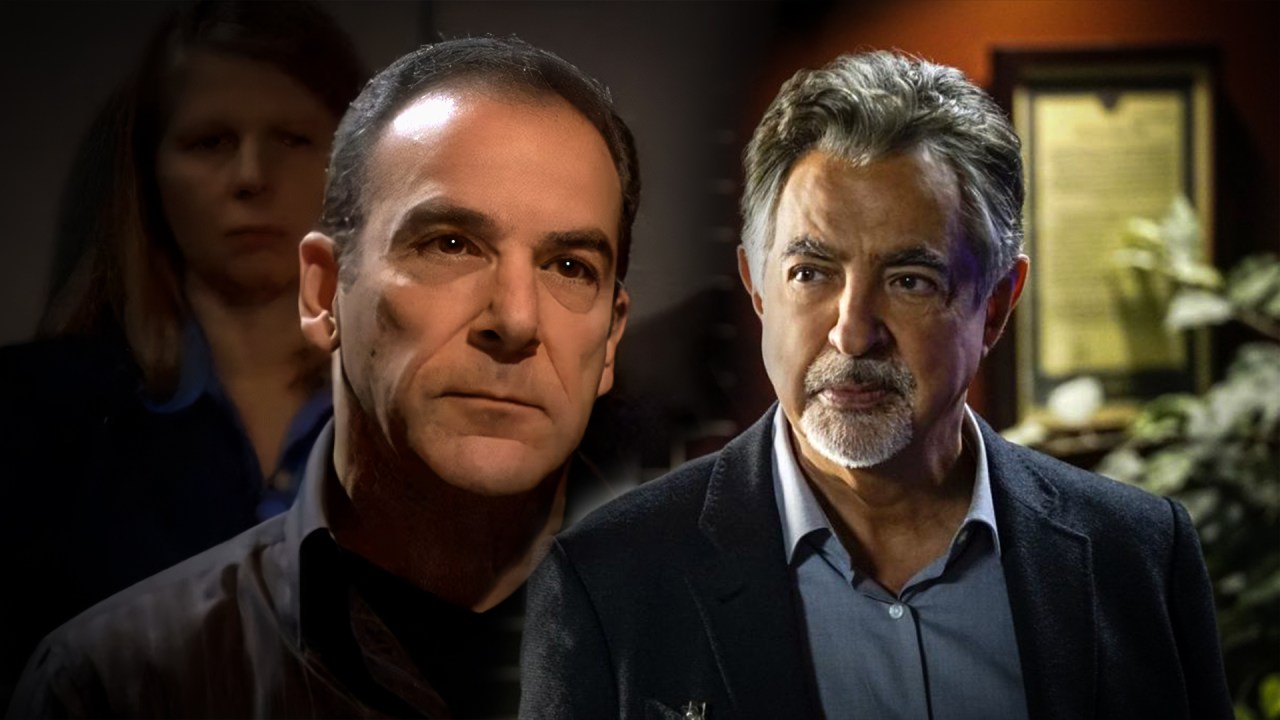
7 TV Shows That Tried Switching Out Their Main Character
These shows had to replace their main characters--some for the better, some for the worse.
These shows had to replace their main characters–some for the better, some for the worse.
It’s always a fascinating moment when an actor decides to step away from a TV show, especially when said TV series has acquired widespread popularity among mainstream viewers. Whether pursuing another acting opportunity or departing for more personal reasons, these actors leave behind a significant absence in their program’s cast list upon their official exit.
Such is especially the case with TV shows that lose their main characters. Shuffling their ensemble casts around to make room for a new series protagonist, these TV shows tried their best to carry on in the wake of their main star’s departure (sometimes with mixed results, in the case of several prominent sitcoms, drama series, and sci-fi adventure shows).
Criminal Minds
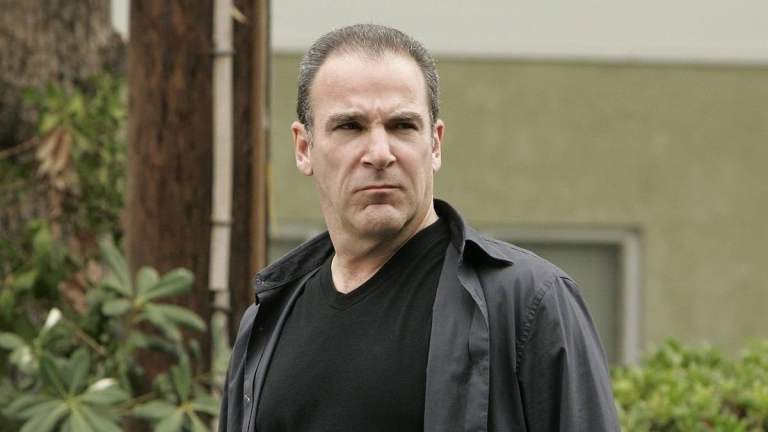
In its earliest inception, Criminal Minds centered around the exploits of the F.B.I.’s Behavioral Analysis Unit under Mandy Patinkin’s veteran psychological profiler, Jason Gideon. However, after a mere two seasons, Patinkin decided to step away from CBS’s police procedural drama, allowing his on-screen protege, Aaron Hotchner, to step in as the B.A.U.’s official team leader. While Gideon was frequently referenced from Season 3 onward, Patinkin himself never returned to Criminal Minds, with his character eventually meeting an off-screen death in Season 10’s “Nelson’s Sparrow.”
Two and a Half Men
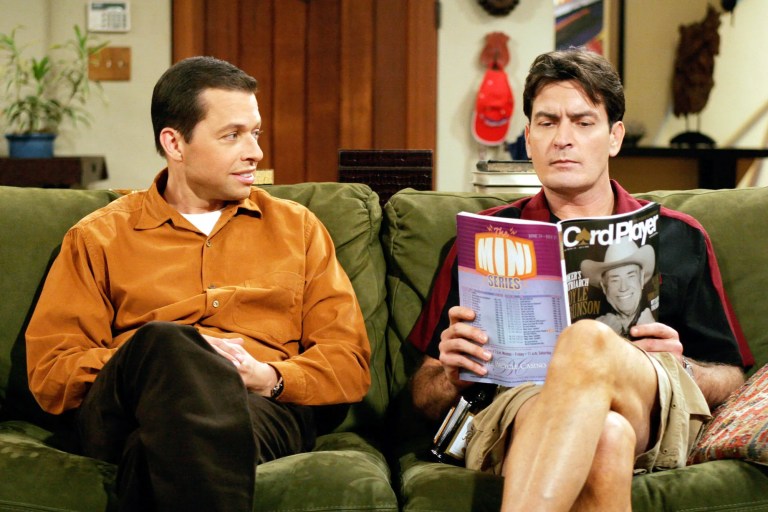
Undoubtedly one of the most publicized TV scandals came with the abrupt dismissal of Charlie Sheen from CBS’s fan-favorite sitcom, Two and a Half Men. After eight seasons portraying the suave Malibu Lothario Charlie Harper, Sheen’s tenure on Two and a Half Men came to a screeching halt following several controversial comments Sheen made about showrunner Chuck Lorre. When Two and a Half Men returned for its ninth season, Lorre wrote Sheen’s character off the show and introduced fans to Ashton Kutcher’s lovesick tech billionaire, Walden Schmidt (a move that did little to appease fans of the once popular sitcom).
Happy Days
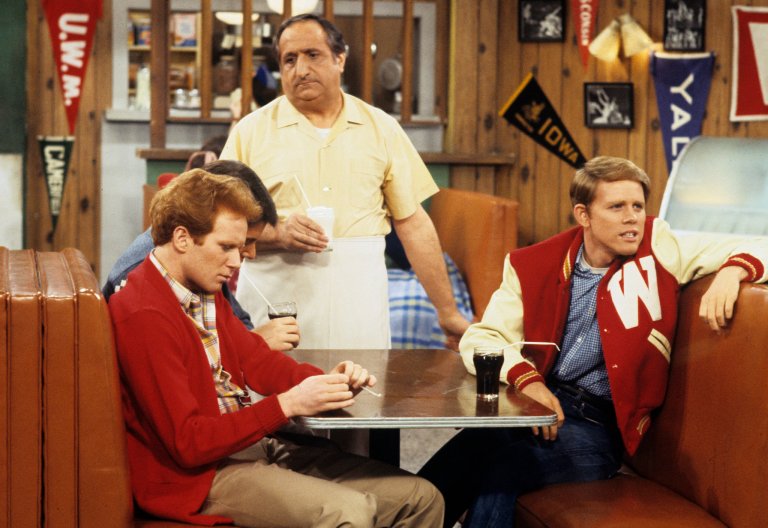
Even those who have never seen Happy Days are able to recognize Henry Winkler’s iconic breakout character, Fonzie. A leather-clad greaser who dazzled 1970s viewers with his suave personality and bad-boy demeanor, the Fonz soon became something of a pop culture sensation by the time Happy Days entered its second season. Following star Ron Howard’s departure in Season 7, the series effortlessly reoriented itself around Winkler’s tough-talking character, carrying on with Fonzie as Happy Days’ final four seasons.
That ‘70s Show
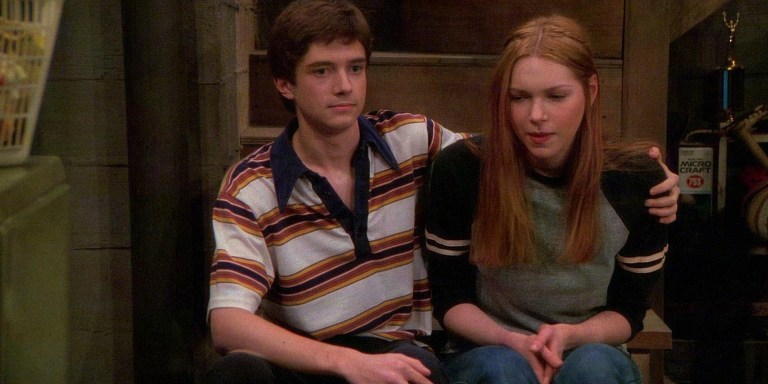
To many fans across the globe, the moment Eric Forman left Point Place, Wisconsin for a humanitarian mission in Africa, That ‘70s Show as we knew it came to a close. Rather than ending the series with Topher Grace’s departure in Season 7, however, That ‘70s Show’s showrunners decided to pivot away from Eric’s character by introducing Josh Meyers’ charming Point Place resident, Randy Pearson. An amalgamation between the recently departed Eric and Kelso, Randy’s character met with hostile fan reception, resulting in Meyers fading into the show’s background by the time That ‘70s Show’s finale aired in mid 2006.
Star Trek: The Original Series
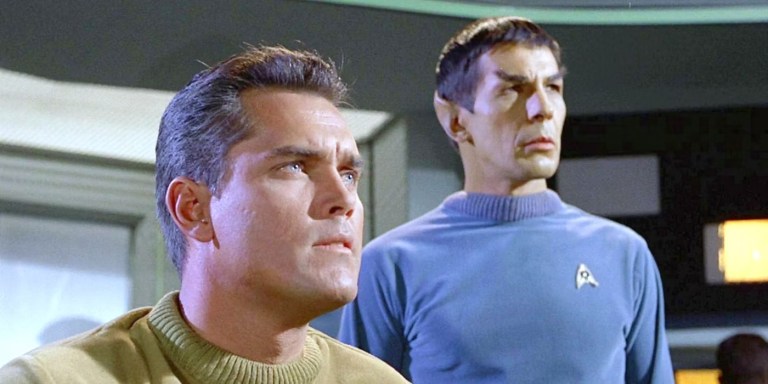
Before Will Shatner handed in his career-making performance as James Kirk, the U.S.S. Enterprise was helmed by Jeffrey Hunter’s dashing Starfleet commander, Captain Christopher Pike. Making his initial appearance in Star Trek: The Original Series’ first pilot, “The Cage,” series creator Gene Roddenberry originally envisioned Pike as Star Trek’s lead character – an authoritative and heroic rogue manning the Enterprise’s bridge on a weekly basis. Once NBC failed to green-light Star Trek for full-scale production, however, Hunter withdrew from the series, causing Roddenberry to cast Shatner as Hunter’s replacement. The rest, as they say, is history.
The Office
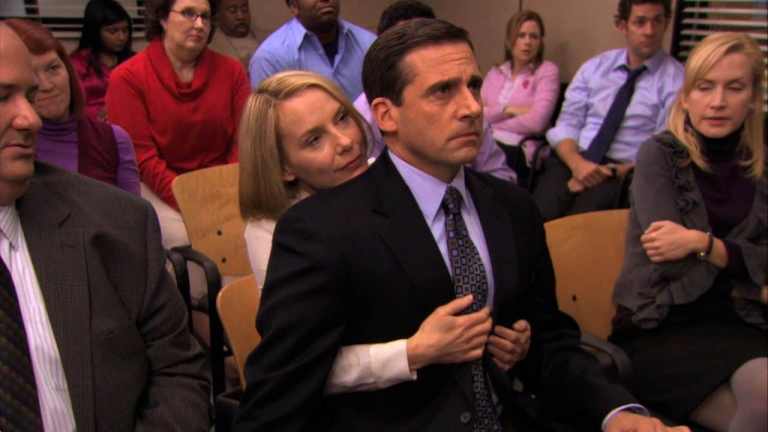
The Office may have taken some time to develop its comedic style, but the end product was nothing short of revolutionary. Popularizing the entire mockumentary format in the late 2000s, The Office earned avid acclaim for its idiosyncratic humor and fully-formed characters — none more so than Steve Carrell’s series lead, Michael Scott. Once Carrell chose to leave The Office in Season 7, however, Greg Daniels and company wound up filling Dunder Mifflin’s vacated manager position with Ed Helms’ Andy Bernard. Though audiences clearly missed the childish antics of Carrell’s infantile branch manager, The Office continued on with Andy as the lead for another two shakily received seasons.
Doctor Who
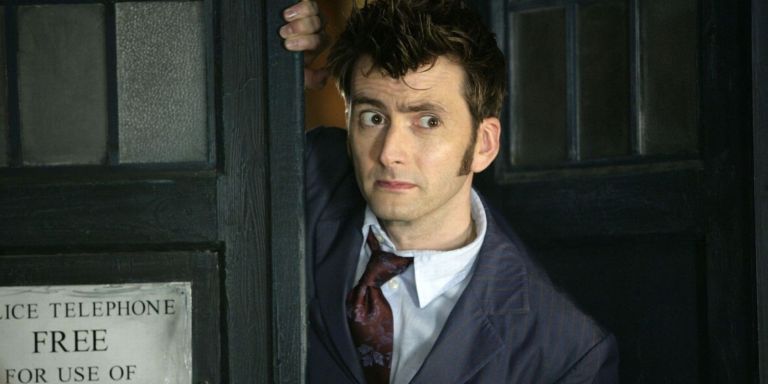
Whereas most shows struggle to soldier on following their main star’s exit, Doctor Who found an ingenious way to avoid this issue. Through the Doctor’s cyclical “regeneration” process, Doctor Who’s showrunners introduced a feasible way to explain the Doctor’s continuous casting changes without fretting too much about continuity or canonical accuracy. Routinely relying on their signature regeneration, Doctor Who has cast over a dozen performers in the part of the Doctor, with each actor able to maintain their own distinct quirks, personality traits, and individual wardrobe choices in the series’ titular role.
